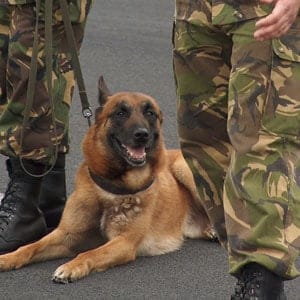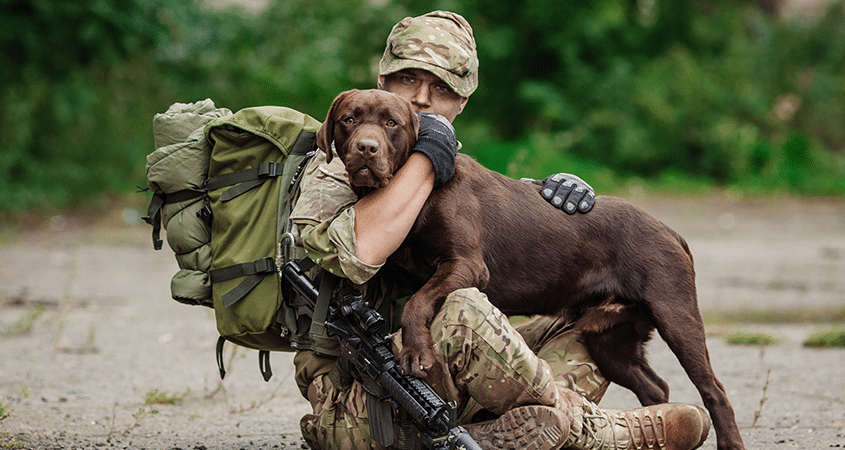
By Joe Wilkes
Like their human counterparts, the dogs of war also undergo rehabilitation for their scars. While having risked their own lives and bearing witness to the casualties of war, many of the returning dogs from Iraq have been diagnosed and treated for post-traumatic stress disorder (PTSD).
Dogs have been increasingly used in military conflicts. Because of their sensitive noses, they have become the best line of defense against improvised explosive devices (I.E.D.’s), as most of these roadside bombs use chemical explosives, unfound by metal detectors, the previous standard in bomb detection. Special forces dogs such as the ones that contributed to the killing of Osama Bin Laden have also become critical operational elements.
Whether the dogs have been used in specialized operations or as traditional guard dogs, they have been subjected to the same traumatic events as any soldier and bear the emotional scars upon returning home from their mission. Unlike humans, they can’t speak to what they have witnessed, and so must be treated with special care and intuition to what they have been through.
Treatment
Veterinarians gauge how the dogs respond to loud noises such as gunfire or whether they react with aggression or fear to their handlers, who they may hold responsible for their introduction to a chaotic situation. The dog veterans may also hold aversions to the settings of the trauma, whether it be a vehicle or type of building. By ascertaining the cause of the trauma, the veterinarians can help desensitize the dog so the events, participants, or locations don’t cause unnecessary reaction.
Many dogs also experience human-like long-term reactions such as anxiety and panic attacks. Veterinarians have been trained to look out for these mental and emotional stresses, and dog versions of human anti-anxiety medications such as Xanax are available for prescription.
Bouncing back
The goal with many of these military dogs is to rehabilitate them so they can continue the service for which they’ve been trained and help save the lives of countless soldiers. Many bounce back with therapy, medication, rest, or a combination. Other dogs who are too traumatized may be taken out of service so they don’t pose a danger to others or themselves. These dogs are recommended for re-homing with families who can provide the special care they need.
Tell us in the comments about a service dog that has touched your heart.











